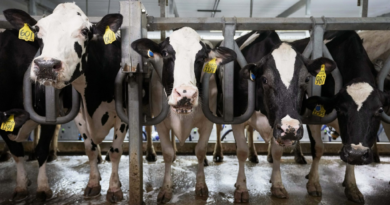A chocolate breakthrough! Switzerland says it has found a new way to make the sweet treat
It’s been a rough year for chocoholics. Spot prices for cocoa nearly tripled earlier this year, and consumers looking for a cocoa fix have had to cover those costs. But news from Switzerland, the mecca of chocolate offerings, could offer some hope.
Food scientists at Zurich’s Federal Institute of Technology say they have developed a method to utilize more of the cocoa fruit to make chocolate, which could help growers, the environment, and, eventually, consumers.
Chocolate today is made using just the beans of the cocoa fruit. The rest is discarded. Scientists, though, say they’ve found a way to incorporate the whole fruit—and to make chocolate without using added sugar.
Even without that additive, though, the new chocolate style is described as rich, dark, and sweet by one reporter who tried a sample.
The new chocolate takes the parts of the cocoa fruit which are normally discarded and juices them. That juice, which is said to have fruity qualities, is 14% sugar. That’s distilled down to become a concentrated syrup, which is combined with the pulp and dried husk to become a sweet cocoa gel. When that’s mixed with the cocoa beans to make chocolate, there’s no need for additional sugar.
The method not only eliminates waste, it could let cocoa fruit growers ask higher prices. What it would not do, though, is eliminate the child labor and deforestation issues that have been tied to the chocolate industry. Starting next year, any chocolate imported to the European Union must come with a guarantee that no deforestation took place in growing the cocoa used to make it.
Several Swiss chocolate manufacturers, including Lindt, have begun using the new method, but none, so far, has gone so far as to eliminate sugar from their recipe. And that might mean it will be a while before this new method benefits your wallet.
Sugar is subsidized in Switzerland; cocoa pulp and juice aren’t, so while it’s environmentally more responsible to use the rest of the fruit, it’s cheaper to stick to the older methods for now. But as consumers take more interest in the carbon footprint of the companies they buy from, that could change in years to come.
A Wall Street legend gets a radical makeover, crypto iniquity, misbehaving poultry royalty, and more.
Read the stories.



